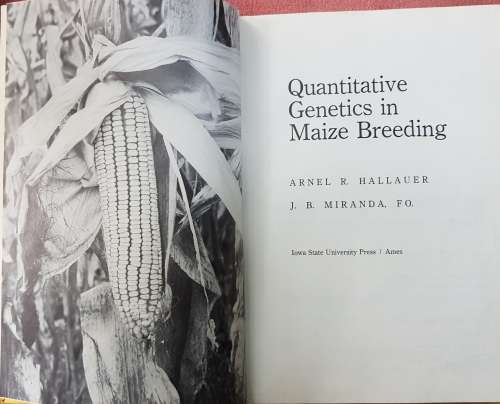
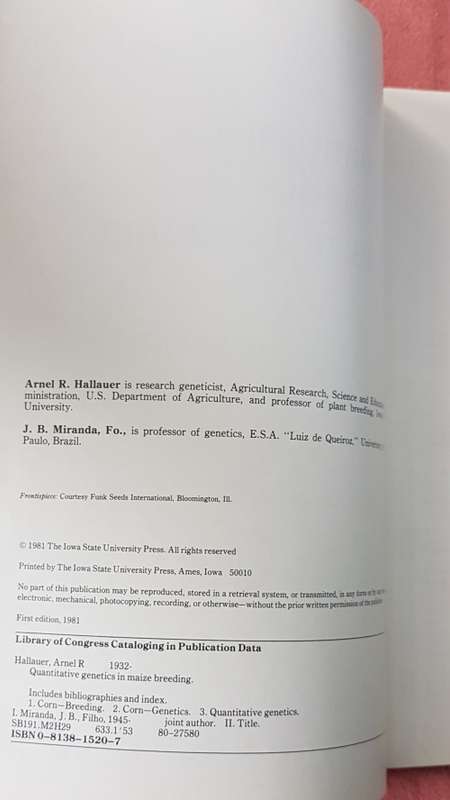
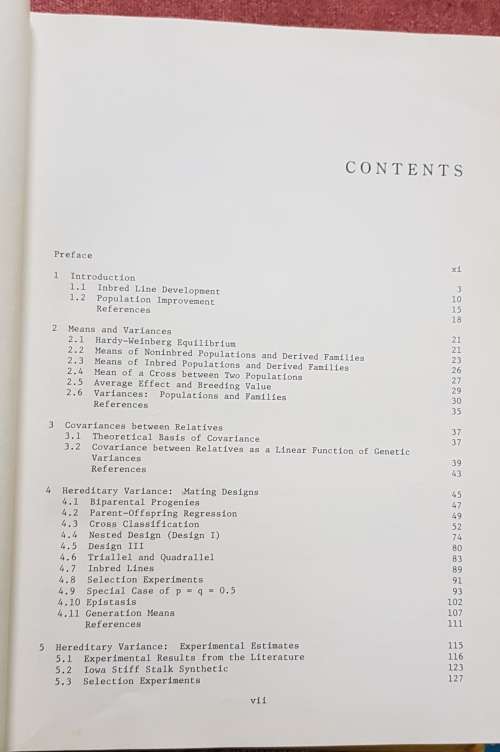
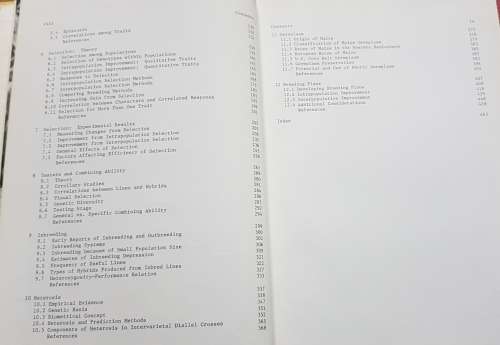
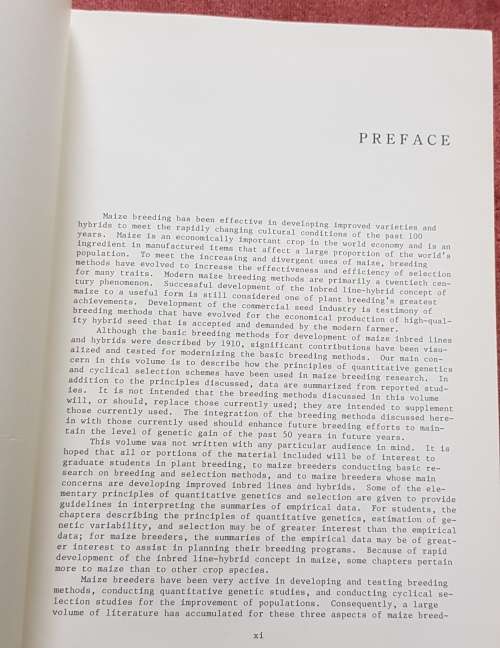
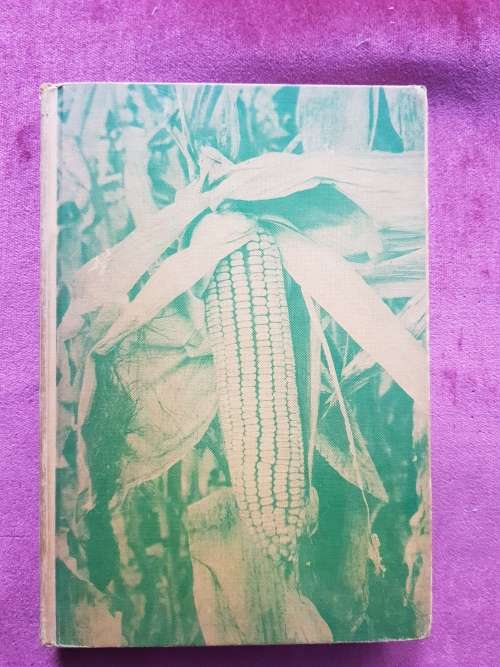





Quantitative Genetics in Maize Breeding
Check my rate
| Main centres: | 1-3 business days |
| Regional areas: | 3-4 business days |
| Remote areas: | 3-5 business days |











| Main centres: | 1-3 business days |
| Regional areas: | 3-4 business days |
| Remote areas: | 3-5 business days |
Quantitative Genetics in Maize Breeding
Hardvover
First Edition 1981
Published by Iowa State University Press, 1981
Quantitative Genetics in Maize Breeding Public investment in maize breeding from 1865 to 1996 was $3 billion (Crosbie et al., 2004) and the return on investment was $260 billion as a consequence of applied maize breeding, even without full understanding of the genetic basis of heterosis. Quantitative genetics has allowed the integration of prebreeding with cultivar development by characterizing populations genetically, adapting them to places never thought of (e.g., tropical to short seasons), improving them by all sorts of intra and inter population recurrent selection methods, extracting lines with more prob ability of success, and exploiting inbreeding and heterosis. Quantitative Genetics in Maize Breeding aims to increase awareness of the relative value and impact of maize breeding for food, feed, and fuel security. Without breeding programs continuously developing improved germplasm, no technology can develop improved cultivars. This volume presents principles and data that can be applied to maximize genetic im provement of germplasm and develop superior genotypes in different crops. This is a unique and permanent contribution to breeders, geneti cists, students, policy makers, and land grant institutions still promoting quality research in applied plant breeding as opposed to promoting grant monies and indirect costs at any short term cost. The book is dedicated to those who envision the development of the next generation of cultivars with less need of water and inputs, with better nutrition; and with higher percentages of exotic germplasm as well as those that pursue independent research goals before searching for funding. Arnel R. Hallauer is C. F. Curtiss Distinguished Professor in Agriculture (Emeritus) at Iowa State University (ISU). Dr. Hallauer has led maize breeding research for mid season maturity at ISU since 1958. His work has had a worldwide impact on plant breeding programs, industry, and students and was named a member of the National Academy of Sciences. Hallauer is a native of Kansas, USA. M.J. Carena is professor of plant sciences at North Dakota State University (NDSU). Dr. Carena has led maize breeding research for short season maturity at NDSU since 1999. This program is currently one the of the few public U.S. programs left integrating pre breeding with cultivar development and training in applied maize breeding